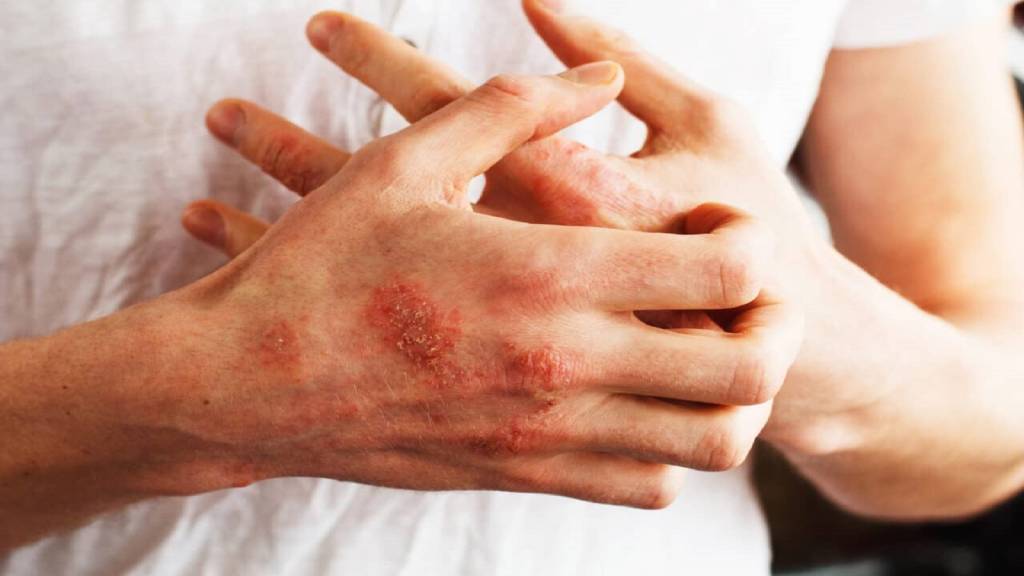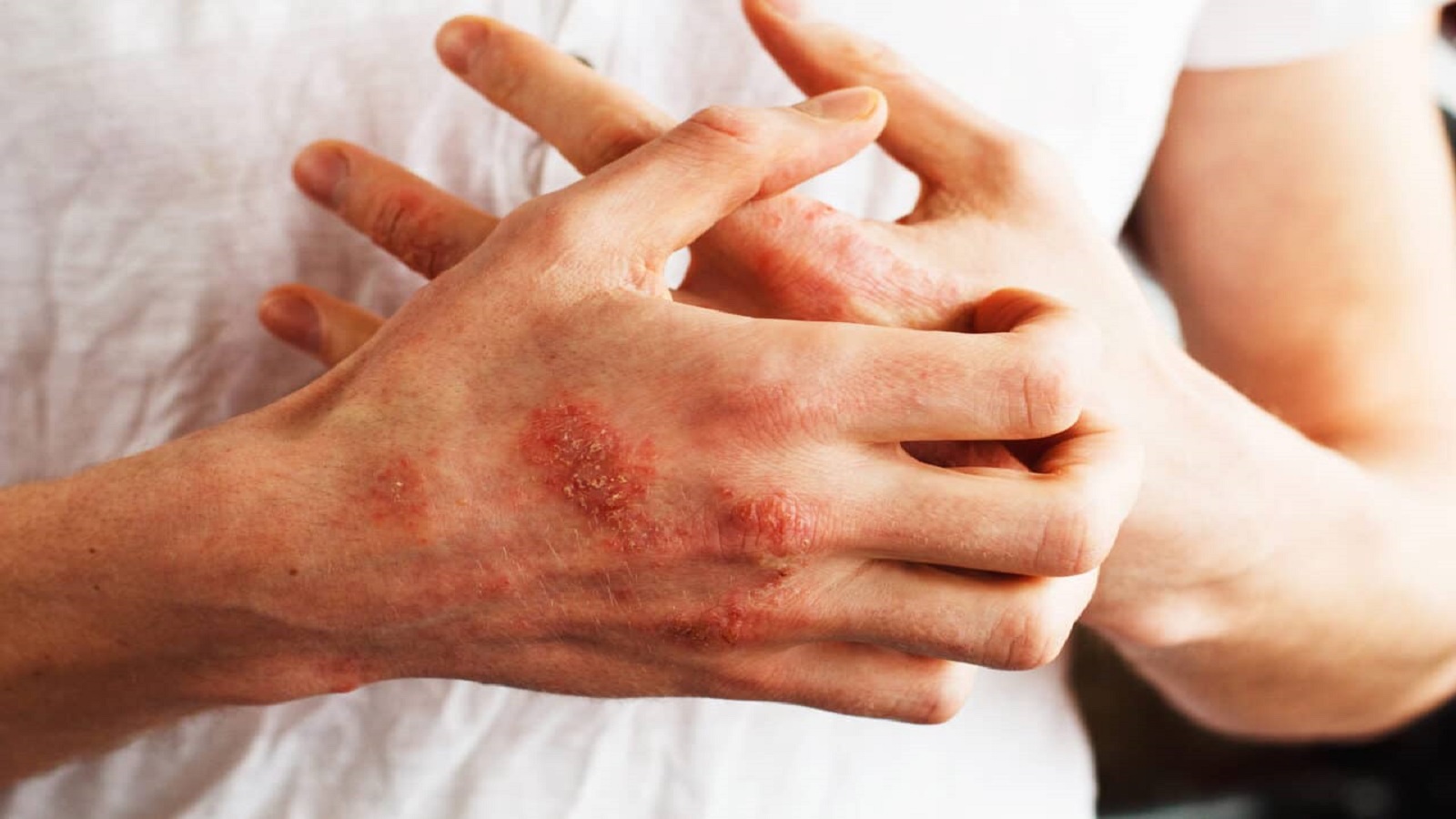Autoimmune skin diseases occur when the immune system mistakenly attacks healthy skin cells, leading to inflammation, damage, and various symptoms. Here’s an overview of some common autoimmune skin conditions:
Common Autoimmune Skin Diseases:
- Psoriasis:
- Symptoms: Red, scaly patches of skin, often itchy or painful, commonly on elbows, knees, scalp, and lower back.
- Causes: Abnormal immune response speeds up the life cycle of skin cells, causing them to build up rapidly on the surface.
- Treatment: Topical treatments (corticosteroids, vitamin D analogs), phototherapy, systemic medications (methotrexate, biologics).
- Vitiligo:
- Symptoms: Loss of skin color in patches due to the destruction of melanocytes (pigment-producing cells).
- Causes: Autoimmune attack on melanocytes.
- Treatment: Topical corticosteroids, calcineurin inhibitors, phototherapy, depigmentation therapy for extensive cases, cosmetic camouflage.
- Lupus (Systemic Lupus Erythematosus – SLE):
- Symptoms: Butterfly-shaped rash across the cheeks and nose, photosensitivity, and various systemic symptoms affecting joints, kidneys, and other organs.
- Causes: Immune system attacks multiple tissues and organs, including the skin.
- Treatment: Sun protection, topical steroids, antimalarial drugs (hydroxychloroquine), immunosuppressive medications.
- Dermatomyositis:
- Symptoms: Red or purple rash on the eyelids, face, knuckles, and other joints, muscle weakness.
- Causes: Inflammatory condition affecting skin and muscles.
- Treatment: Corticosteroids, immunosuppressive drugs, physical therapy.
- Scleroderma:
- Symptoms: Hardening and tightening of the skin, which can also affect internal organs.
- Causes: Overproduction of collagen leads to fibrosis and skin thickening.
- Treatment: Symptomatic treatments, immunosuppressive drugs, physical therapy to maintain mobility.
- Bullous Pemphigoid:
- Symptoms: Large, fluid-filled blisters on areas of the skin that often flex (such as lower abdomen, upper thighs, armpits).
- Causes: Autoimmune attack on the basement membrane between the epidermis and dermis.
- Treatment: Corticosteroids, immunosuppressants, antibiotics to prevent infection of blisters.
- Pemphigus Vulgaris:
- Symptoms: Painful blisters and erosions on the skin and mucous membranes.
- Causes: Autoimmune attack on desmogleins, proteins that hold skin cells together.
- Treatment: Corticosteroids, immunosuppressive drugs, biologics.
General Management and Coping Strategies:
- Medication Adherence: Following prescribed treatment plans to manage symptoms and prevent flare-ups.
- Sun Protection: Using sunscreen and protective clothing to prevent sun-induced exacerbations, especially for conditions like lupus and dermatomyositis.
- Skin Care: Regular moisturizing to prevent dryness and irritation, avoiding harsh soaps and irritants.
- Healthy Lifestyle: Maintaining a balanced diet, regular exercise, and stress management to support overall health.
- Regular Monitoring: Ongoing check-ups with a dermatologist or healthcare provider to monitor disease progression and adjust treatments as needed.
Diagnosis:
- Clinical Examination: Visual inspection of skin changes, history-taking, and symptom assessment.
- Biopsy: Taking a small sample of skin tissue for microscopic examination.
- Blood Tests: Checking for specific antibodies and markers of inflammation.
- Imaging and Other Tests: May be required for systemic conditions affecting internal organs.
When to See a Doctor:
- Persistent Symptoms: If you experience unexplained skin rashes, blisters, or other skin changes that do not resolve with over-the-counter treatments.
- Systemic Symptoms: If you have symptoms affecting other parts of your body, such as joint pain, muscle weakness, or fatigue.
- Diagnosis and Management: For a confirmed diagnosis and to discuss appropriate treatment options and management strategies.


Autoimmune skin diseases can significantly impact quality of life, but with proper diagnosis and management, many individuals can achieve good control of their symptoms and maintain a high quality of life.

